Angel Bat Dawid: Requiem For Jazz
Angel Bat Dawid: Requiem For Jazz
International Anthem 3/24/2023
Angel Bat Dawid is one of America’s foremost contemporary experimental jazz artists, who is entering the peak of her powers. As if to announce her arrival among the greats, her recent album Requiem for Jazz sounds the allusion to great requiems such as Mozart’s Requiem in D minor (K. 626) like a phalanx of trumpets on Veteran’s Day.
Songs throughout Dawid’s album namecheck movements in the classical religious musical art form. With boldface type and billboard lettering, we’re invited to hear (and critique) her work in crosswise fashion, synthesizing our response between the two poles of creativity as if we were plugged into the middle of a Hegelian dialectic.
OK. But wait? Is it a trap…
Sure, yes, of course. Obviously a trap, and a tired rut of American music criticism in the second half of the twentieth century: music critics – mostly white, male, and indoctrinated into the canon of Western Music – wringing their hands over whether to grant admission to various forms of popular music, including jazz, into the hallowed halls of High Art. Boring!
Lucky for us the handwringing is over. Now that jazz is no longer popular music, and its practitioners find themselves on the outside looking in, begging for handouts from grant-awarding institutions alongside the contemporary classical crowd, the critical establishment can finally take it seriously.
Angel Bat Dawid is here to be taken seriously. She’s also here to sell a few records. Her latest offering Requiem For Jazz checks both boxes, making a statement while connecting the jazz tradition with currents in today’s pop scene that can draw in crowds that see live music more often than once a year in Newport, Rhode Island.
Angel Bat Dawid working the crowd at the 2023 Newport Jazz Festival.
The fans who have been following the breadcrumb trail of her International Anthem releases, from the 7-inch Oracle (2019) to the live double album LIVE (2020), can look forward to another release that explores the experimental space opened up between jazz, gospel, techno (?), and straight preaching in collaboration with Tha Brothahood. It’s a collaboration that feels like a relationship with a lot of water under the bridge. And yet, look at that discography…
Is this Angel Bat Dawid’s first full-length studio album?
This is Angel Bat Dawid’s first full-length studio album!
How did that creep up on us? With so much touring under her belt, a reputation flashing like a hot pulsar centered in the city of Chicago, and a jazz establishment eager to scoop up new talents who illuminate new paths, it feels like Dawid has been with us longer than she, in truth, has been.
Due to these unique circumstances, her first studio album feels in some ways like a sophomore album, a second coming, a return to the spotlight, instead of a debut.
Let’s roll with that notion because Requiem For Jazz exhibits some of the usual quirks and bugaboos of sophomore efforts from celebrated artists. In chief, the bugaboo of being too serious about being taken seriously. That’s no skin off a music critic’s back whose stock in trade is taking everything too seriously, including themselves. But it does set up a few roadblocks between the music and it finding a meaningful landing spot in the mind, body, and soul of earnest listeners, which might be worth discussing.
Which brings us to the “manifesto” tracks. Sandwiched between the jazz/gospel mashup allusions to requiem movements are spoken word digressions. Really, just church preaching with Cassandra energy. A summary of these digressions by track number follows, which you’ll enjoy reading about as much as you’ll enjoy listening to them.
1. Jazz is merely the Negroes cry of Joy & Suffering
This is just a talky track. Are there song lyrics with the album? Most preachers train themselves to speak in clear and compelling tones, but the opening speechlet here is fed through a robot voicebox. You do hear “Joy” and “Suffrin,” which is quite enough to introduce the two core ideas in the album and mark the tension between them.
3. Jazz is the musical expression of the triumph of the Negroes Spirit
A theme from elsewhere in the album is retrieved for the ear with all the fidelity of a beat up cassette tape. As if the album was turning in on itself in a reflective fashion, or a snake eating its own tail, digesting itself.
5. This endless repetition is like a Chain around the Spirit. And is a reflection of the denial of a future to the Negro in the American way of life
A clubby beat with deep synth bass unfolds beneath the choral voices of the previous track, marking a gospel soundscape with some house markers. The manifesto comes on top in the form of more Mr. Roboto voice. Who would understand what’s being said without the title of the track? But we have the title of the track. So we understand.
7. Another restraining factor in Jazz are the changes
Angel Bat Dawid speaks in her own voice. The message could be clipped from a guest lecture at the music department of your local university. The content of the message compels with the promise of meaning. The statement is provocative because it seems wrong on its face. But it’s got a chill beat, so it’s partly true? Why should it seem wrong? Because ‘restraints’ are commonly associated with fixity, entrapment, lack of change. And here we are calling change itself a restraining factor. Oh well, why not? Dawid gets deeper into what she means by ‘changes’ in the following song “TUBA MIRUM- The Changes.”
9. The Negro experiences the endless daily humiliation of American life which bequeaths him a Futureless Future
Again, the manifesto portion introduces the next song. In this case, “REX TREMENDAE –Futureless Future.” Dawid speaks. But not until the :45 mark. She leans on the echo, free from the Mr. Roboto effect.
11. The Negro transforms America’s image of him into a transport of Joy!
Another introduction of the next song, “RECORDARE-Recall the Joy.” There’s not much more speech than the title of the track.
13. Jazz reflects the improvised life thrust upon the Negro
An opening clarinet line from Dawid never fails to please, puts you in an enchanted space that is composed of equal parts discovery, equal parts confusion. Feels like Twin Peaks’ Waiting Room. You know, with the red curtains…. Mr. Roboto voice returns, who can bother to decipher the code when the clarinet speaks so effortlessly?
15. Through Spirituals, through the Blues, then through Jazz we made a memory of our past and a promise of all to come
One of the longest manifesto intermissions on the album. And one that feels increasingly like a clip from a live performance. Unless Dawid was up to some production magic, this is an excerpt from stage preaching at a live show. It gels with the way that most of her extended audience would have heard her, via the tremendous double album LIVE (2020).
17. Because Jazz is the one element in American life where whites must be humble to the Negro
Is this the most controversial statement of her manifesto? Not because it makes demands on another race in virtue of its race, but rather that the demand is so timid. Although jazz (and baseball! and military service! and other areas covered by Ken Burns documentaries!) has produced vital opportunities to advance civil rights in America, progress will be slow going if these gilded peacocks are swivels on which white self-reckoning must turn. Some people just don’t dig jazz! Blacks included.
19. Only when whites have paid the price in suffering to be the Negroes equal
Angel Bat Dawid in full pitch shifter mode, as if she’s embarrassed to speak clearly the message in the title of the track. But what are we really talking about here? You have to pay your dues? Who disagrees with that? But what are the dues and what are we paying them for? It all gets a bit fuzzy.
21. The Jazz body is dead but the Spirit of Jazz is Alive
The last manifesto message is, appropriately, about resurrection. This is the end of the body, but the spirit lives on. In other words, she wants to collaborate with non-jazz artists.
Did you get all that? In most cases the manifesto track is explicit commentary on the following song that plies its wares in a more traditionally melodic fashion. The manifesto tracks act as a summary, an exegesis, an analysis, or all of the above. And they are delivered as a kind of in-studio stage banter, festooned with extra production trimmings.
If you want to be generous, you could say that they are the glue that holds Angel Bat Dawid’s vision for the album together. But that prompts one to wonder whether any design that requires this much glue to bind together is artistically- and structurally-sound?
Strike that – if you want to be generous, you should say that the manifesto tracks renews Dawid’s commitment to live performance as the chief conduit of the musical experience. The wordy digressions pop the balloon of your dissociative listening habits. She is not writing background music for your Peloton sessions. The stop & start of sweet-sounding jazz interposed with strident, inspired, and occasionally vituperative, monologue denies you the hedonistic pleasures of the passive listening experience.
All the more appropriate for an album that fuses gospel and jazz strains in a tradition, harking back to the likes of Mary Lou Williams. A tradition of church music that finds new paths through the jazz landscape. A tradition that is in danger of being lost without new practitioners like Dawid. At bottom this is a kind of music that does not want to be enjoyed for enjoyment’s sake. Like church, it’s music that wants to be attended. And attended to. If the music is not leading you a little further down the path to redemption, it’s not worth playing.
Despite all the preaching and fiery rhetoric, Dawid spends little time revisiting or reviewing the crimes committed upon black folk in America. Maybe it’s too obvious to mention in the twenty-first century? Yet it’s usually a part of the ritual of public mourning to recite the transgressions. What is all the suffrin’ about? Dawid seems interested in using the history of civil rights in America as a jumping off point, taken up into reflection on the transfigurative power of creativity that is connected with, but not limited to, its historical situation. Making the extended allusion to requiems, Mozart’s masterpiece or otherwise, at once natural and superfluous.
Angel Bat Dawid (credit: Terrance Antonio James)So Angel Bat Dawid is a supremely historically-situated artist who structures her album and her rhetoric like a mobius strip to land outside of time in the eternal spirit of live performance. Sounds simple enough. She’s written a Requiem For Jazz that will stave off the actual requiem for jazz another decade or so. If you want to read the latest Book of Jazz before its published, you’ll have to sit in on the lectures. We’re taking attendance. Donations welcome. Coffee & donuts to follow. God bless.



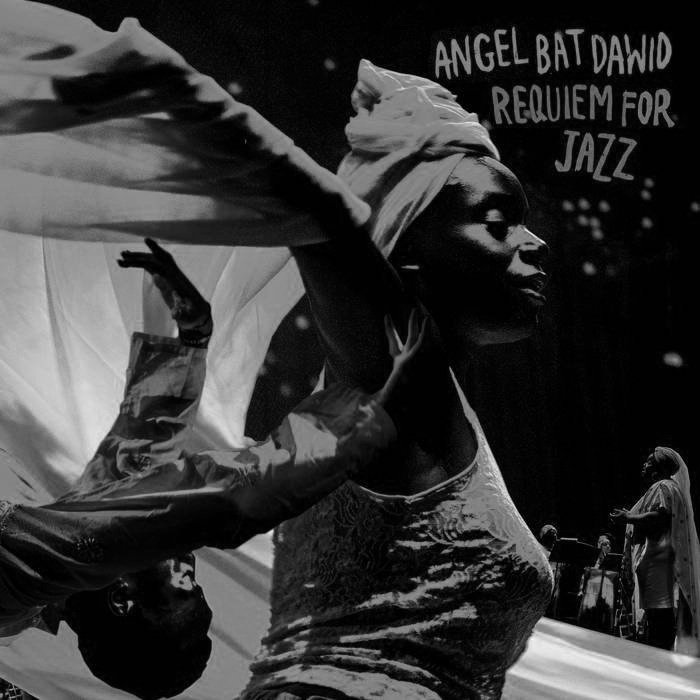
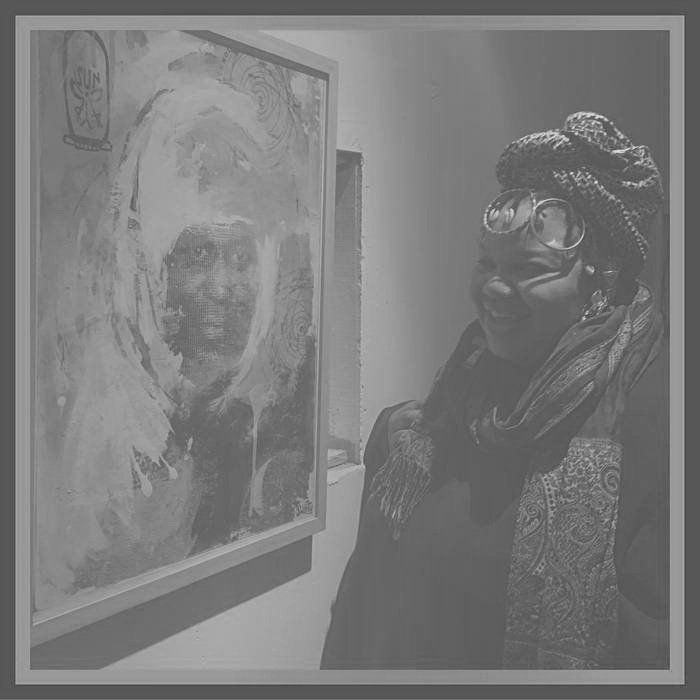



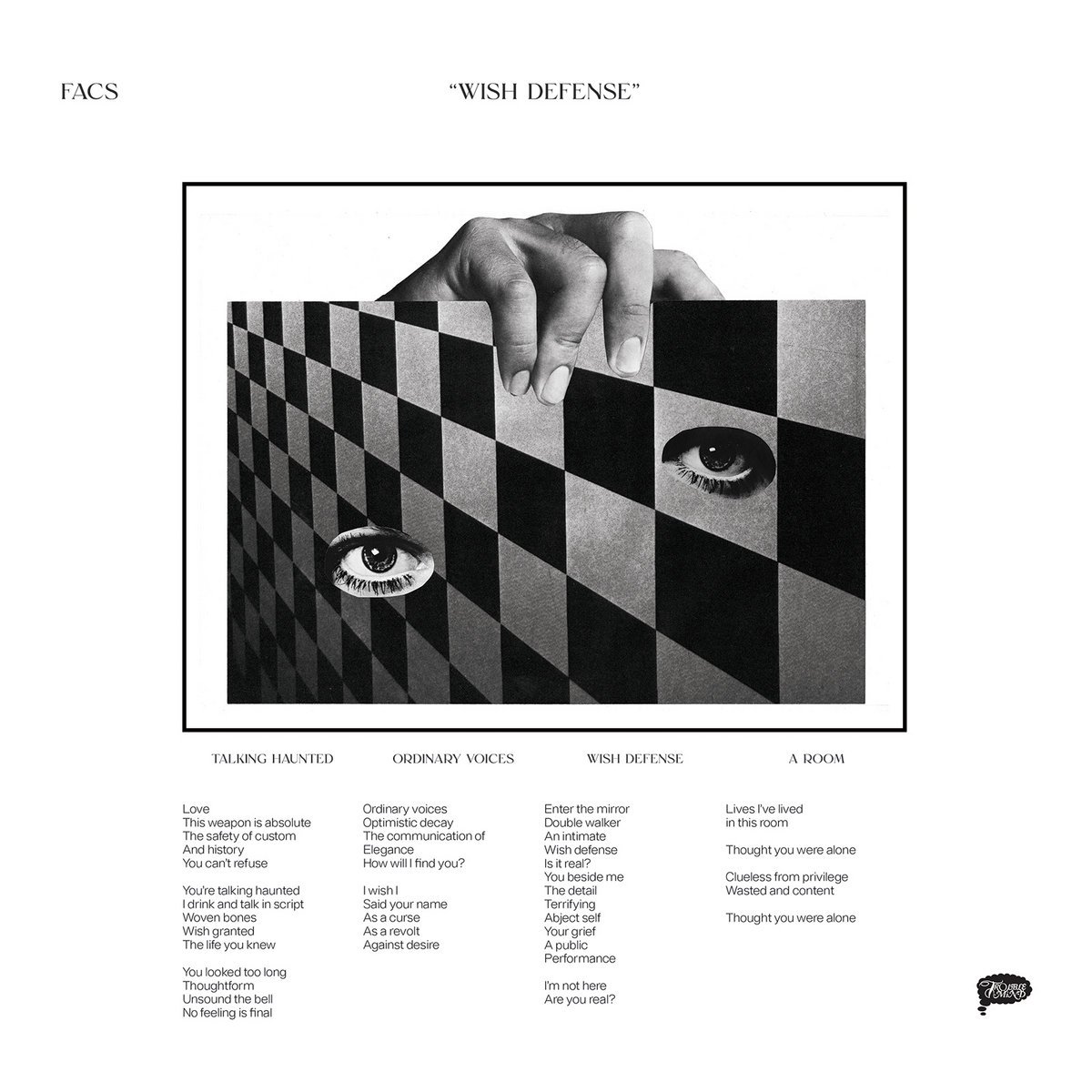
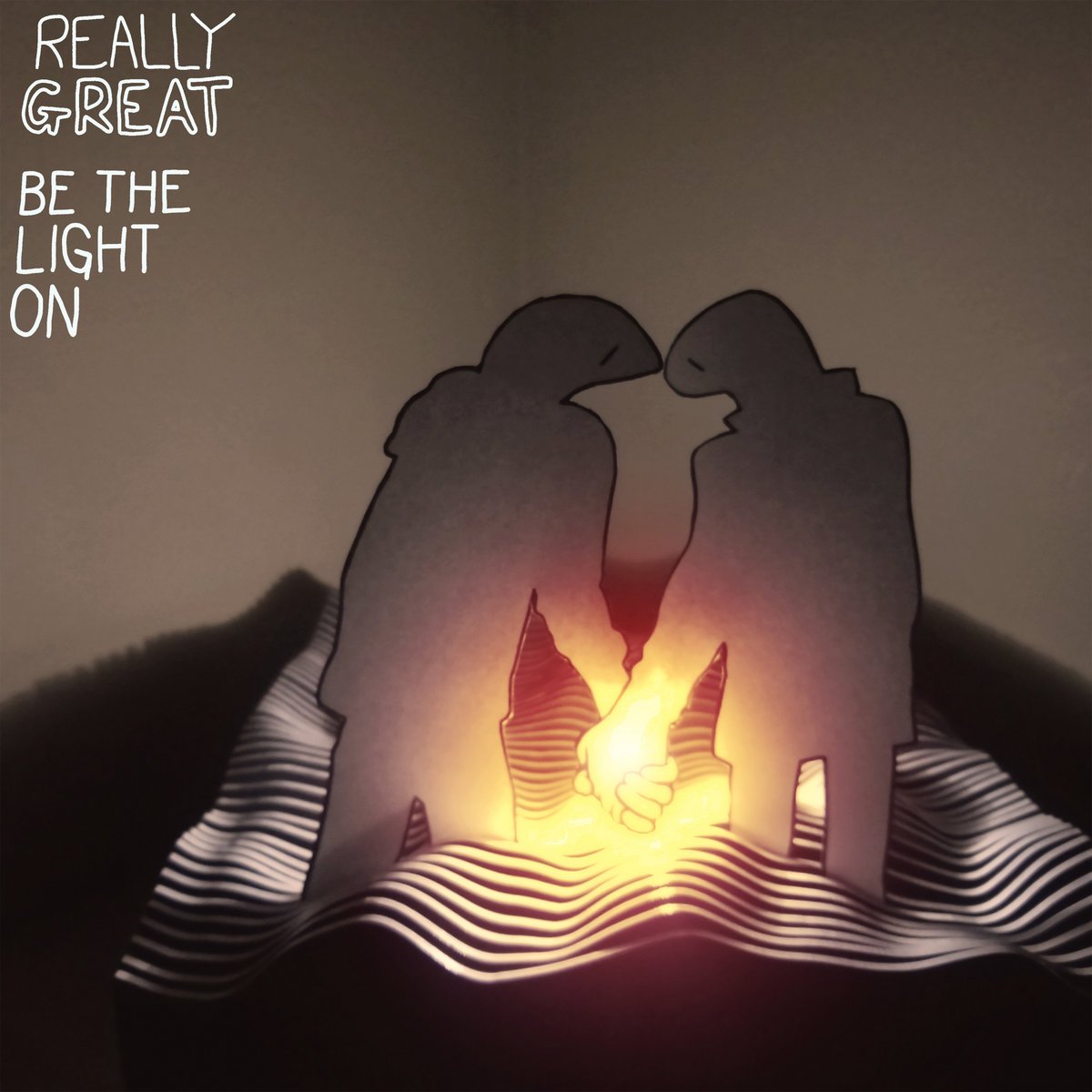
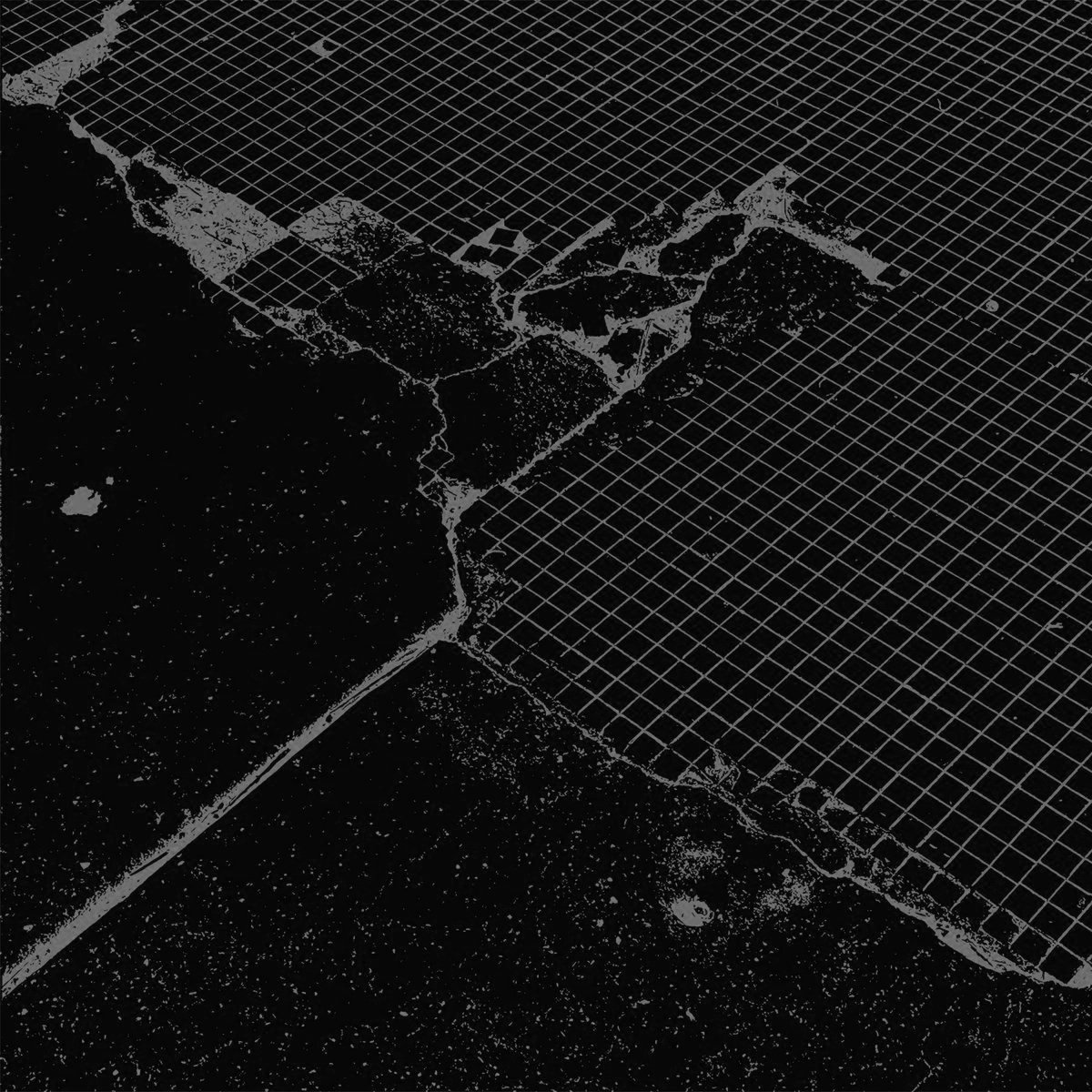
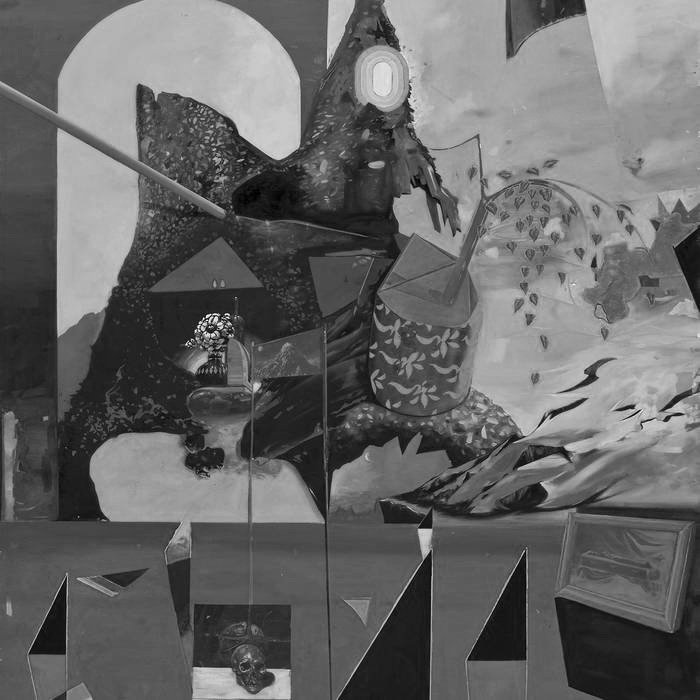
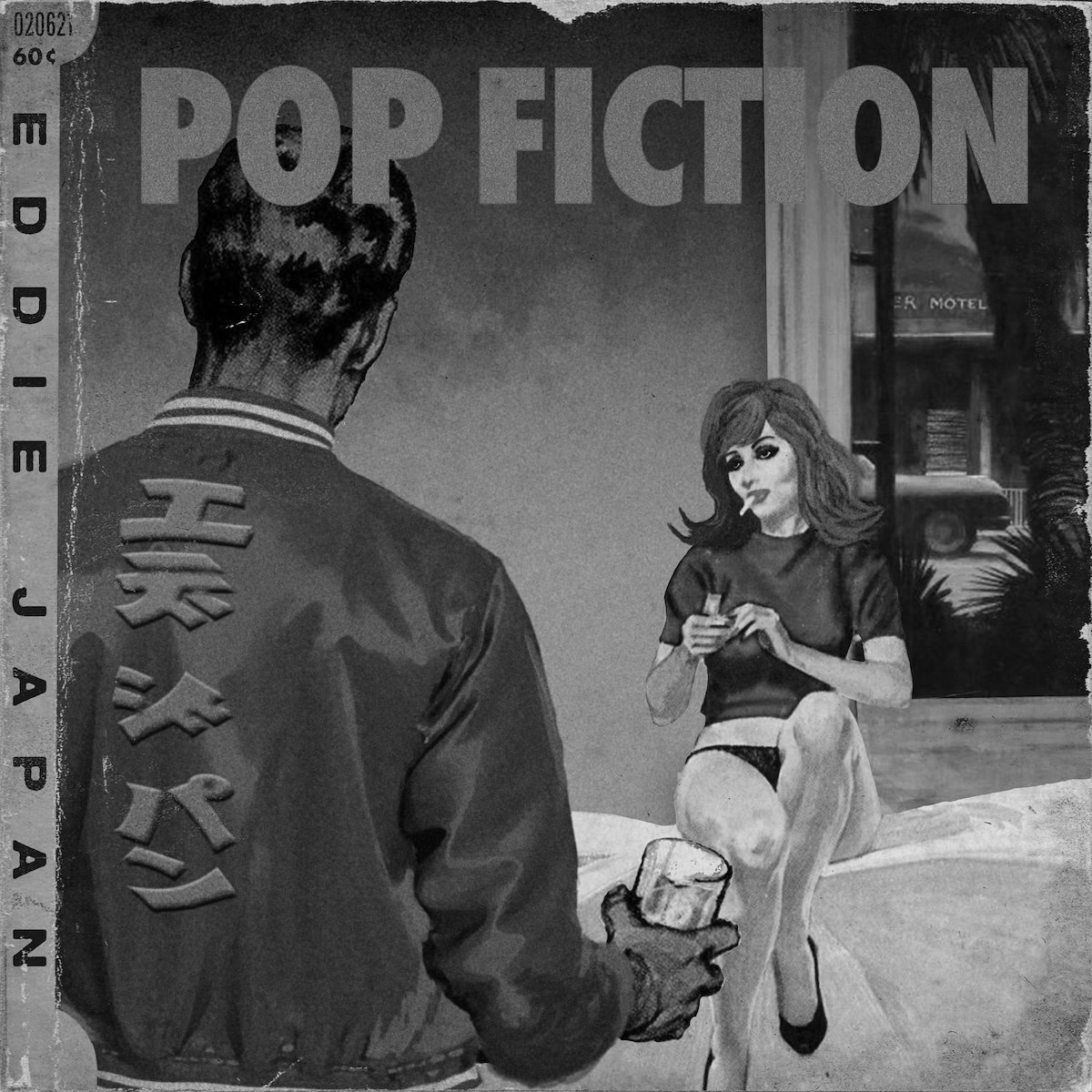
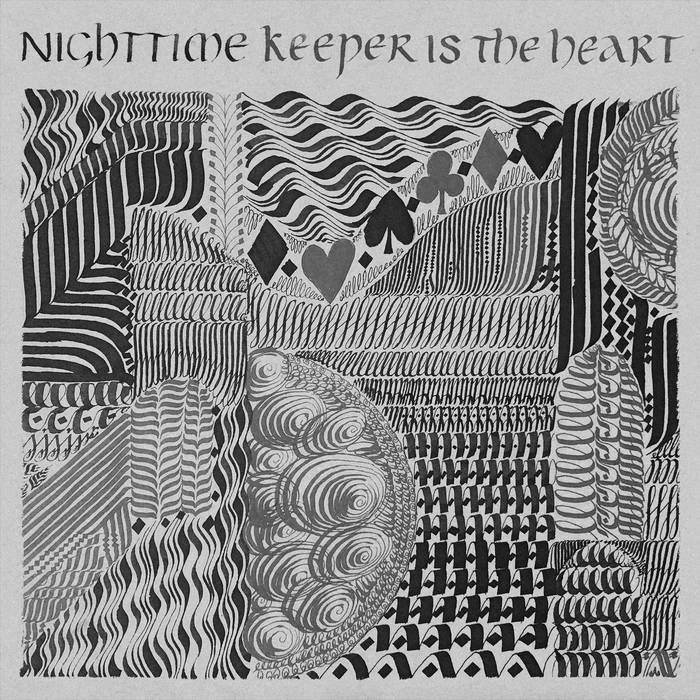
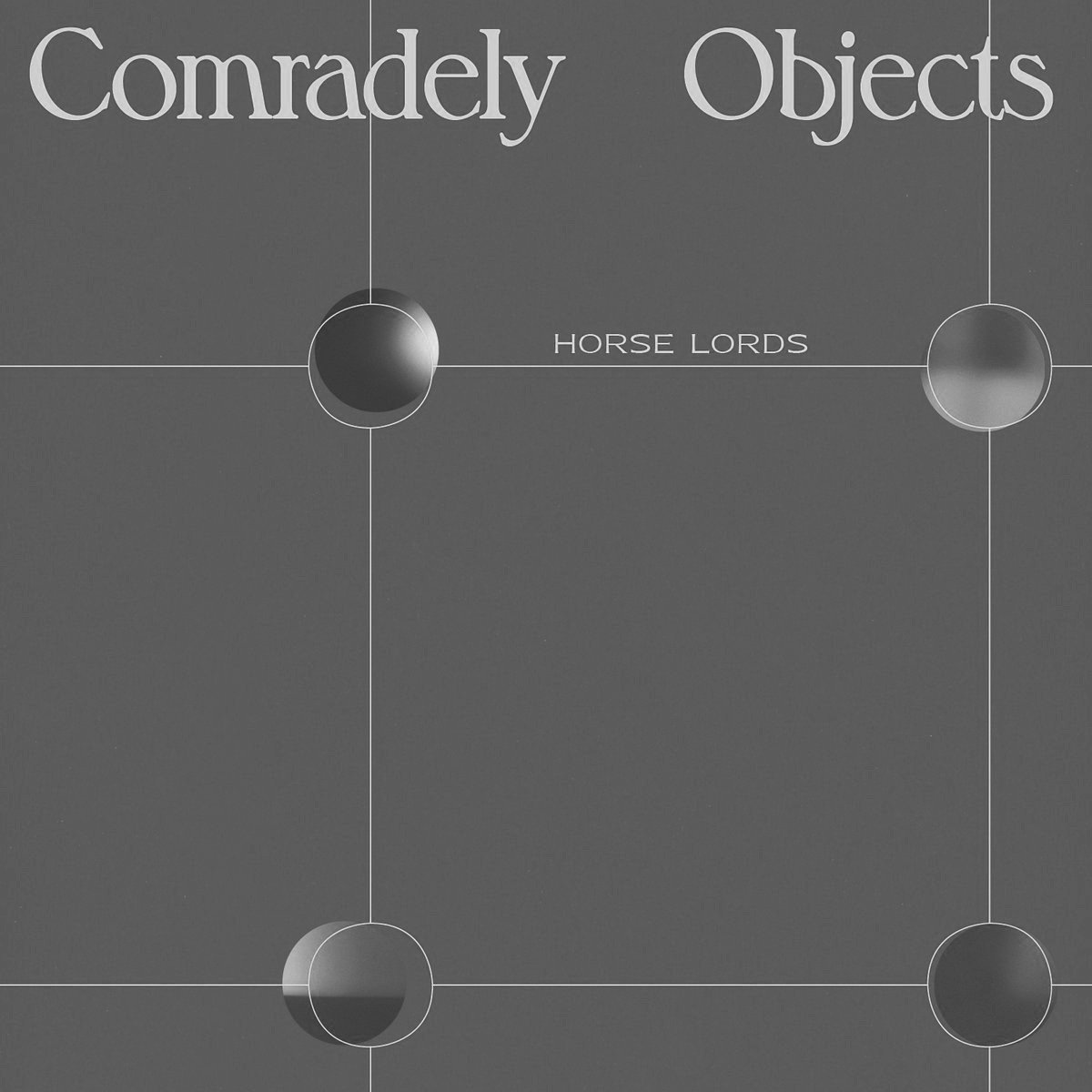
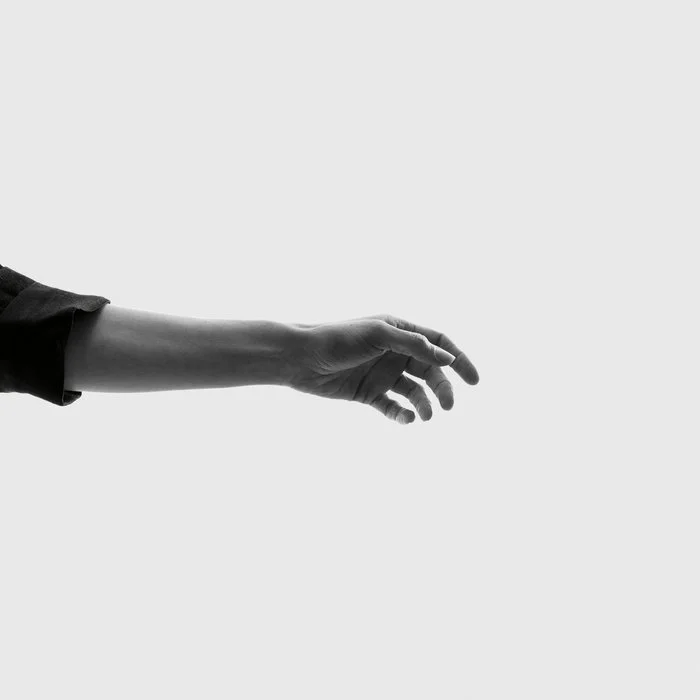
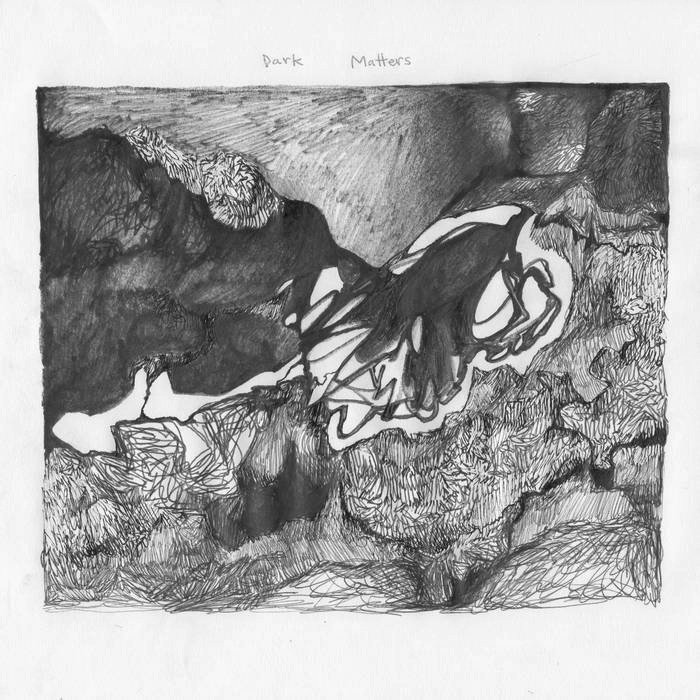
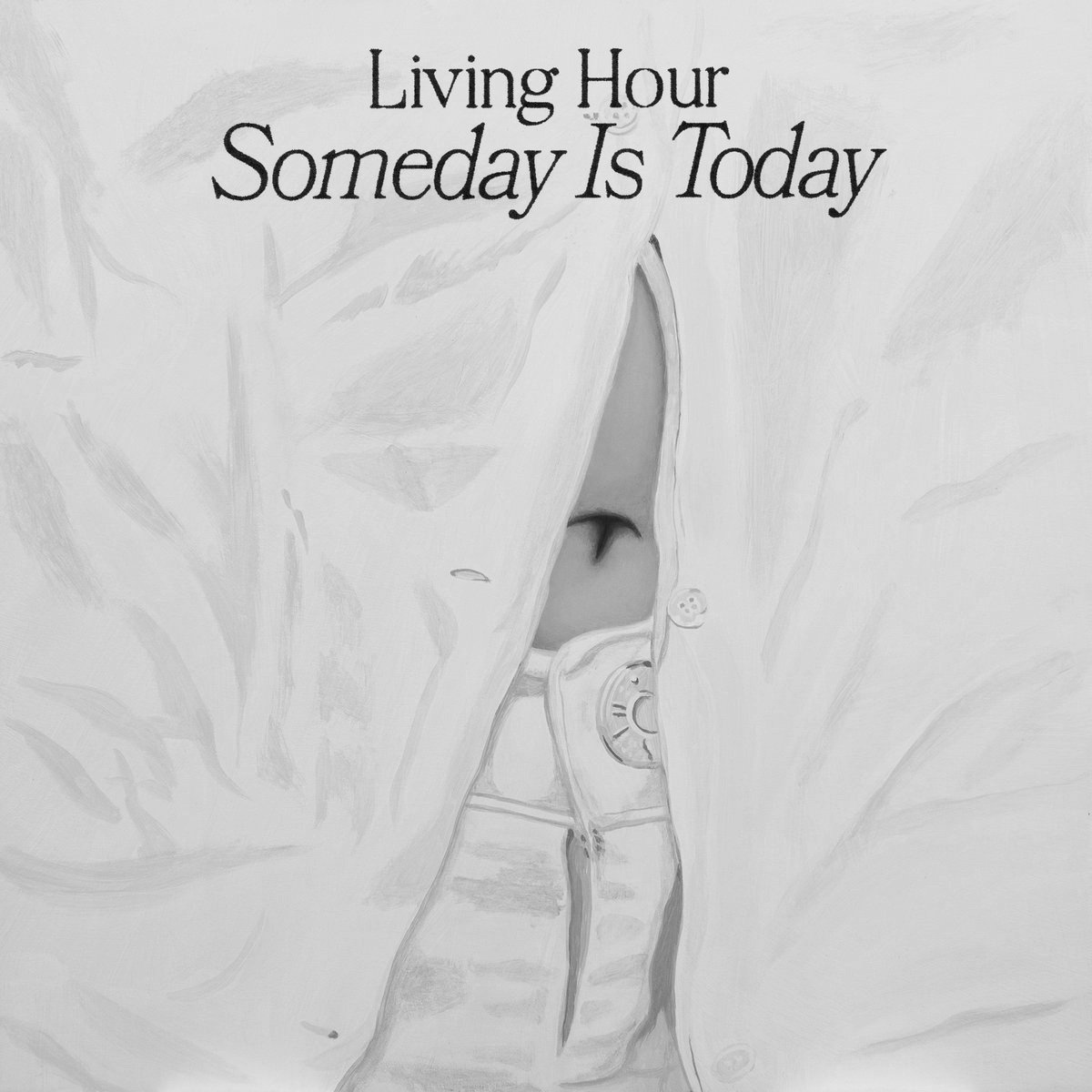
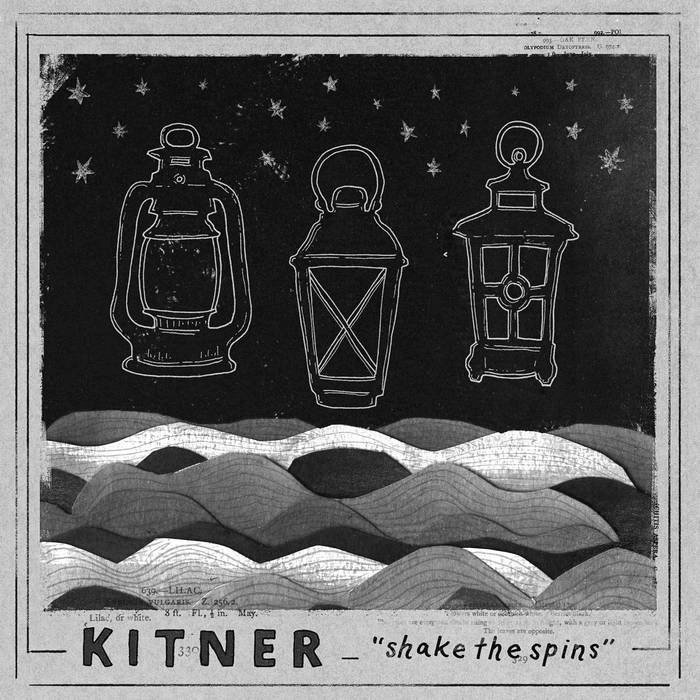

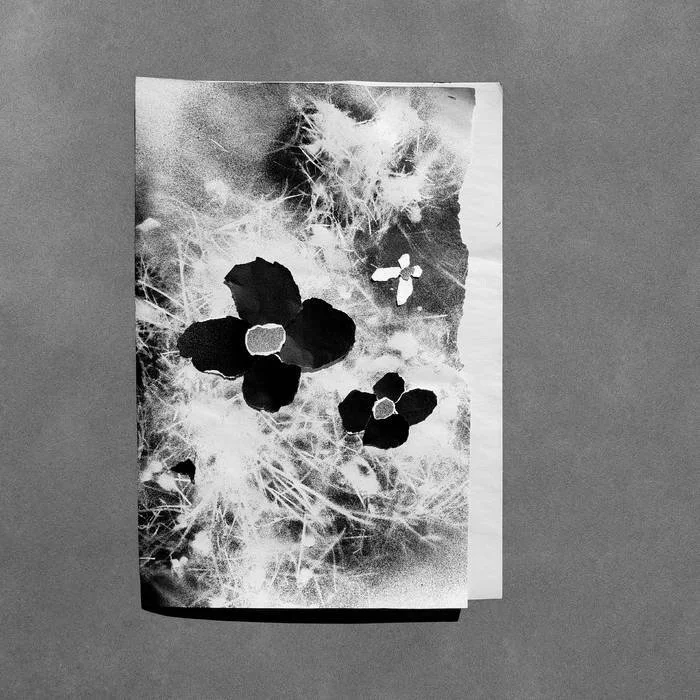











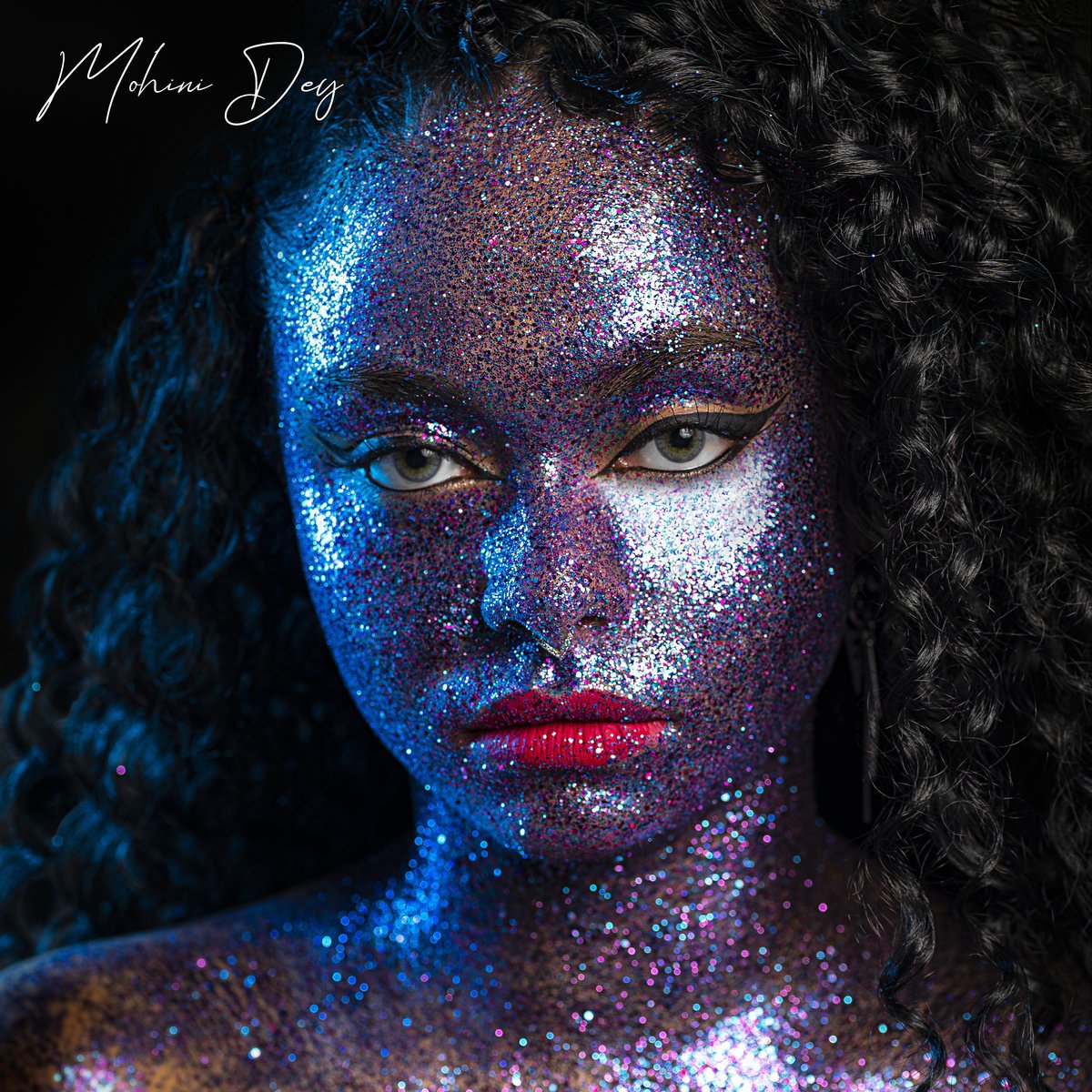
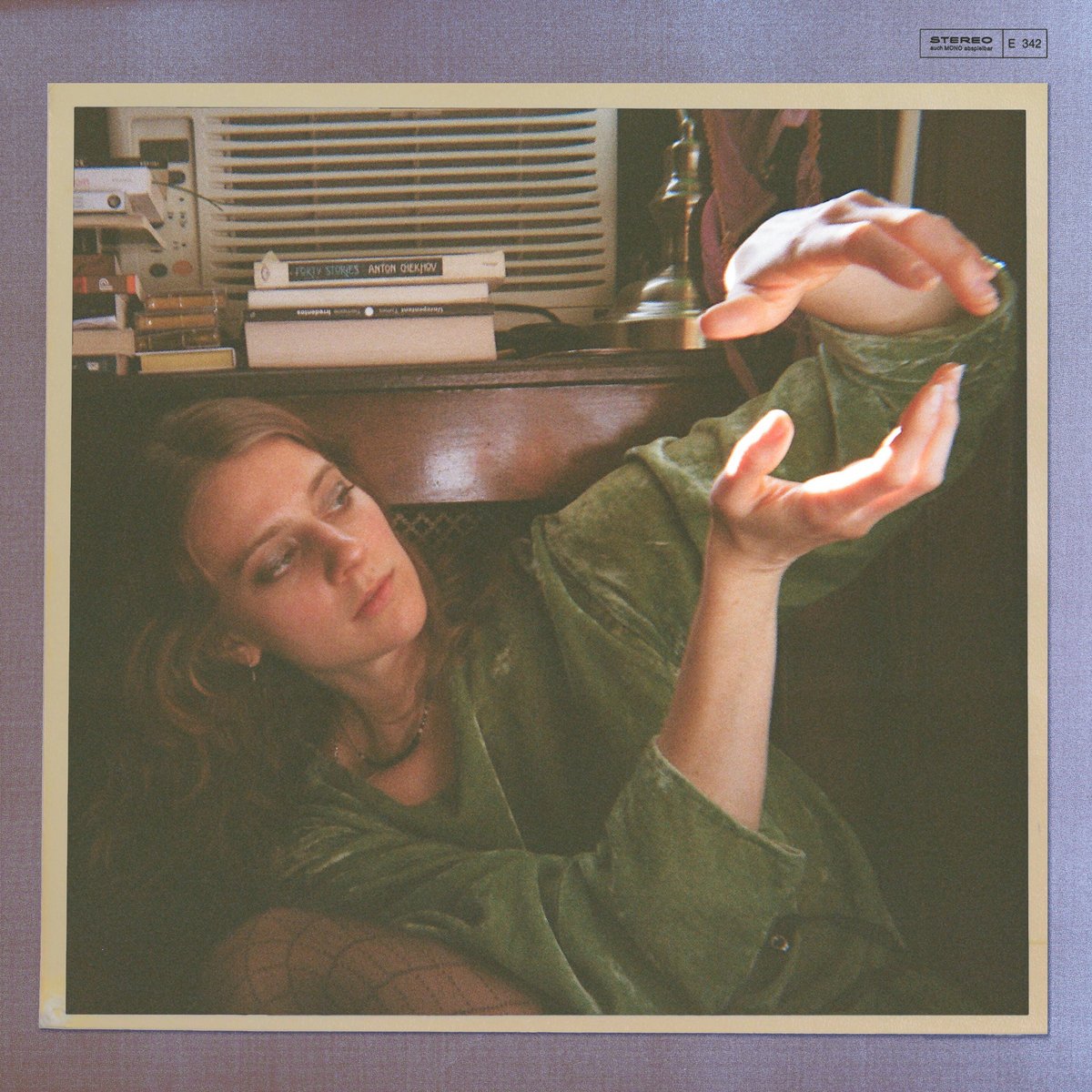

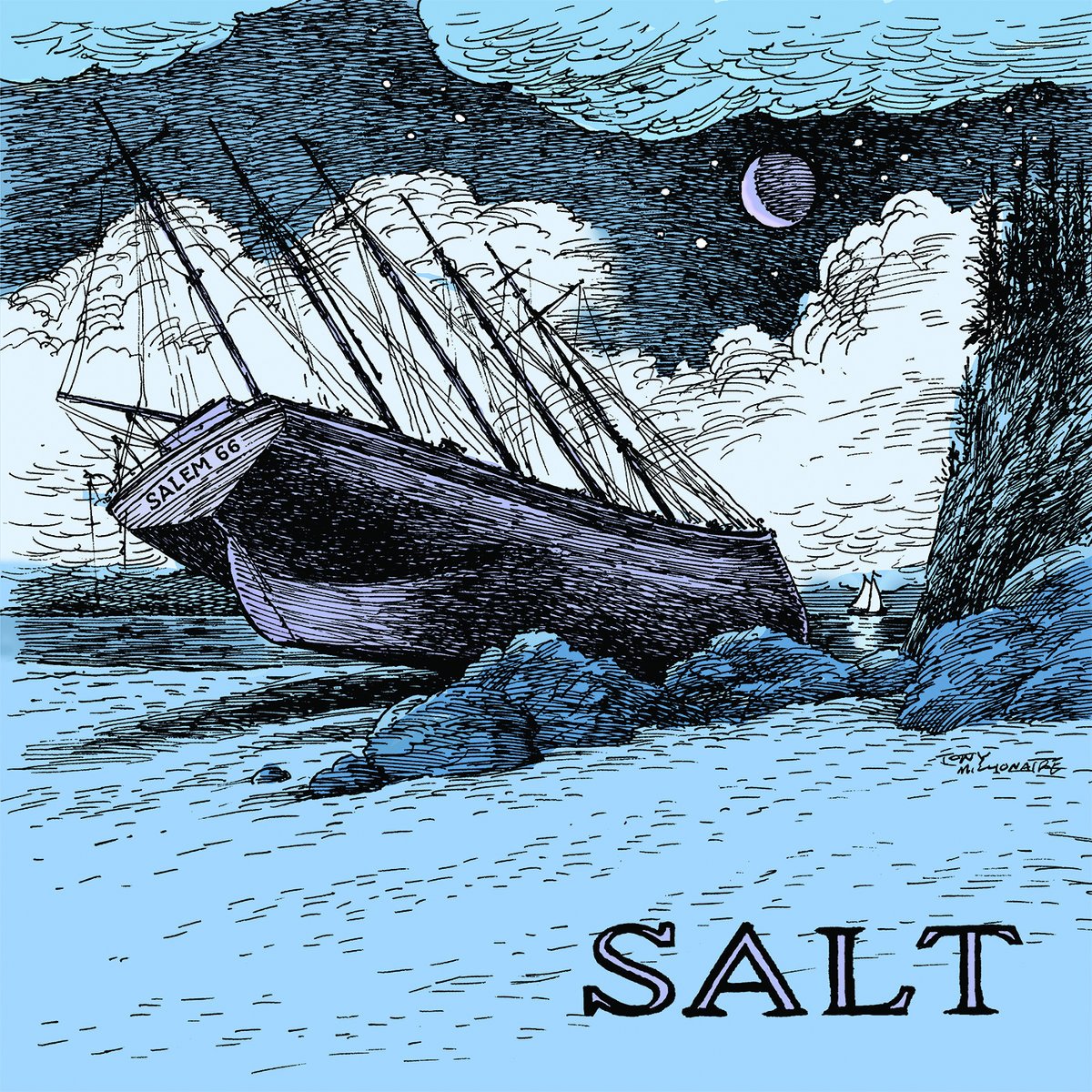














Not just an album – a constellation.